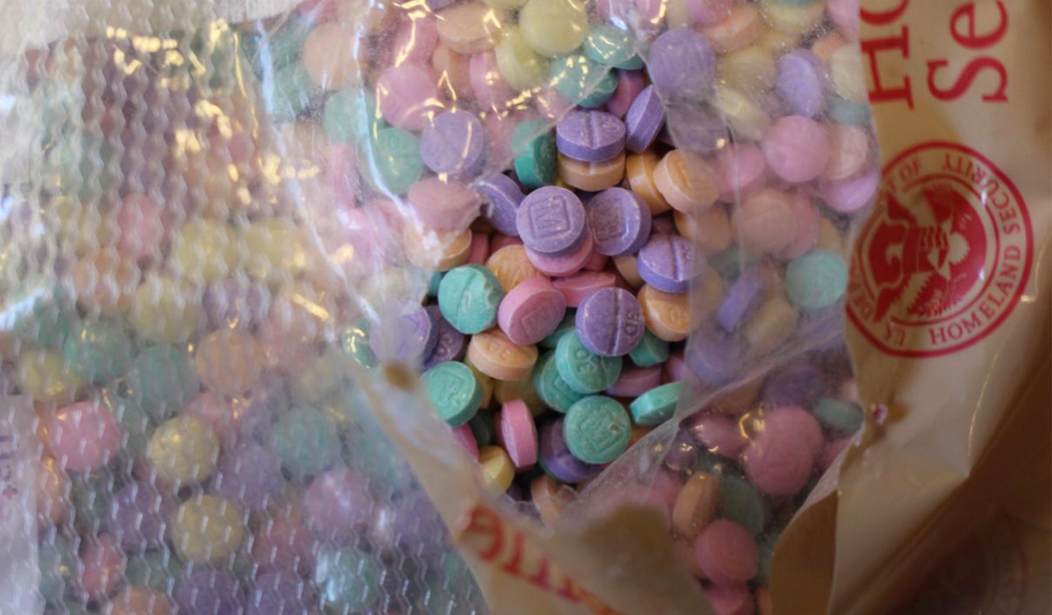Nobody with two IQ points to rub together can deny that the United States is in the middle of a crisis with illegal fentanyl. Time was, not all that long ago, when emergency rooms seeing a fentanyl overdose was a rare event. Now it's disturbingly common, and the smuggling of fentanyl is a billion-dollar criminal enterprise. We know where the bulk (if not all) of the precursors used to make the illegal drugs are coming from (China) and where most of the manufacturing of the drug is done (Mexico).
We shouldn't ignore those sources. But there's another problem, and that's how the drug is getting into the United States. Venezuelan cartels have made a business of smuggling drugs into the United States, and recently, the War Department has taken on the task of interdicting the speedboats used by the cartels to move their illegal cargoes and disassembling those boats and their crews with high explosives.
This is leading some to ask: Is this all just for show? An article by Steve Smith at the Pacific Research Institute raises some interesting points.
First, some extremely valid and troubling numbers:
In 1999, just 703 people died from fentanyl overdoses. For the next ten years, those deaths remained relatively low. hitting 2,628 in 2012.
Yet from 2013 to 2023, fentanyl killed 376,197 Americans – a number roughly equivalent to the entire population of Cleveland Ohio. This doesn’t factor in the over 1.3 million overdose victims who received lifesaving doses of Narcan from EMS providers alone from January 2022 to September 2025.
Those are lives saved certainly but without treatment they are also deaths delayed. Add to this catastrophe the uncounted billions of dollars and lives lost in systemic and pharmacological violence, addiction driven economically compulsive crime, and the largely ineffective and expensive government response which has relied on the band-aid approach of administering Narcan to hide the problem under the guise of “harm reduction.”
We should note that not all fentanyl is illegal. It's also used for legitimate treatments for long-term chronic pain. My mother wore a fentanyl patch on her back for several years before her passing, as her spine was reduced to what was essentially a stack of rice cakes by long-term arthritis, and it was the only thing that could make her pain levels tolerable. This medication, in this form, greatly improved her quality of life in her last few years.
But it's the illegal fentanyl that we are concerned about here - and the means by which that and other illegal drugs are smuggled into the USA.
The public’s frustration shows why President Trump’s decision to declare to Congress and the American people that we are in “armed conflict” with drug traffickers as well as the sinking of four “go-fast” boats by Navy destroyers has been politically popular.
500,000 dead Americans vs 16 alleged Venezuelan drug runners is an easy sell to Americans seeking the sugar high of an easy solution.
Whether the strategy offers sustainable long-term solution or is even legal is another story.
The purpose of the Armed Forces, in the words of Secretary of War Pete Hegseth, is to “kill people and break things.” They do this very effectively as the Houthis and the Iranian regime now know.
What they are not good at is law enforcement as that is not their purpose.
That's a fair point, but this isn't just about law enforcement. This is where the United States, the War Department, and the Trump administration embrace the power of "and."
Read More: This Is the Way: Trump Reports Another Intercepted Drug Boat
Boom! FBI Shuts Down Maduro's International Money-Laundering Ops
Here's the thing: The value in doing this, in interdicting and destroying these boats on the high seas, is about much more than just reducing drug smuggling. It does that, yes; and what's more, drugs are a low-volume, high-value cargo. A speedboat like the ones we've been watching as they are detonated by American weapons can carry millions of dollars of fentanyl, cocaine, and other illegal drugs. So every hit costs the cartels dearly.
But this is not meant to be a law enforcement exercise. It's all about sending the message. And the message to the cartels is this: "We're coming after you. Personally."
Now, there are other policy decisions to be made. The Chinese Communist Party has proclaimed fentanyl to be an "American problem" and claims to have clamped down on its export of precursors. This is, of course, the purest form of what may be found behind the north end of a southbound mule. This is a destabilization exercise by the Chinese government, with the willing participation of criminal elements in Mexico. And this needs to be dealt with.
But we are the United States of America, for the luvva Pete. We can walk and chew gum at the same time. We can deal with drug cartels in Mexico, we can put increased pressure on China, and we can go on detonating drug-smuggling boats run by the Venezuelan cartels. Steve Smith makes some good points, not the least of which that it's hard to interrogate a drug smuggler who is currently residing on the bottom of the ocean, but we can, and should, continue to send this message: "Try to smuggle drugs in speedboats, and you will be blown up." It's a powerful message, many a cartel drug-runner is doubtless feeling maladjusted about the whole prospect of taking to sea right now - and that's a good thing.














